How to Get an IT Job as a Fresher 2025: The Ultimate Guide
The IT industry is booming, and with the right approach, freshers can land a rewarding job in 2025. However, with lakhs of engineers graduating every year, standing out is crucial. This guide from Aryu Academy will help you navigate the job market effectively, ensuring that your efforts lead to success.

Step 1: Identify Your Path – Tech or Non-Tech
Before diving into job hunting, it’s essential to determine whether you are inclined towards a technical or non-technical role.
- Technical Roles: Require programming skills in languages like Java, Python, C++, or web development frameworks.
- Non-Technical Roles: Include positions like project management, business analysis, digital marketing, or tech sales that don’t demand coding expertise.
Choosing the right path ensures you invest your efforts in skills that match your strengths and career aspirations.
Step 2: Choose Between Product-Based and Service-Based Companies
Your career path should align with your skills and goals:
- Service-Based Companies: These firms work on multiple client projects, offering stability and exposure to different technologies. Languages like Java, C++, and Python are commonly used.
- Product-Based Companies: These focus on building and enhancing their own products. Web development technologies, AI, and cloud computing are highly valued.
Understanding this distinction helps you align your job search with your long-term goals.
Step 3: Stay Updated with Trending Technologies
Technology never degrades; it only upgrades. The key to success is choosing a field that remains relevant. Before enrolling in any course, seek expert advice to ensure your time and effort are well spent. Key skills for 2025 include:
- UI/UX Design
- AR/VR
- Cloud computing
- Blockchain
- Data analysis
- Cybersecurity
- DevOps
- Full-Stack Development
- Digital Marketing

Step 4: Develop In-Demand Skills Through Self-Learning
With abundant resources available online, self-learning is no longer optional; it’s a necessity. Employers look for candidates who proactively build skills. Utilize platforms like:
- Academy Platforms – Enroll in industry-relevant courses to stay ahead.
- Online Coding Platforms – Sharpen technical skills with hands-on coding challenges.
- YouTube & Blogs – Gain insights from experts and stay updated with the latest trends.
Step 5: Build a Strong Portfolio and Network
A well-structured portfolio and a strong professional network can significantly boost your job prospects.
- Create projects showcasing your skills on GitHub.
- Contribute to open-source projects.
- Engage in LinkedIn networking and attend industry webinars.
Step 6: Apply Smartly and Prepare for Interviews
- Customize your resume: Highlight key skills and projects.
- Apply strategically: Use job portals like LinkedIn, Naukri, and Indeed.
- Prepare thoroughly: Focus on coding problems, system design, and behavioral questions.
Final Thoughts: The Right Strategy Makes All the Difference
Opportunities are always available, but success depends on making informed choices. Choose trending technologies, learn consistently, and seek expert guidance before investing time and effort into any field. Aryu Academy is here to guide you with industry-relevant courses and expert mentorship to help you secure your dream IT job in 2025.
Ready to take the next step? Join Aryu Academy today and secure your future in IT!
FAQ’s
How Can I Start Coding?
Starting coding is easier than ever! Here are some steps to begin:
- Choose a language: For beginners, start with a simple language like Python, JavaScript, or HTML/CSS for web development.
- Learn the basics: You can start with free resources like Codecademy, freeCodeCamp, and W3Schools to understand coding fundamentals. If you prefer structured learning with expert guidance, consider joining a reputable institute like Aryu Academy for hands-on training and mentorship.
- Practice regularly: The more you practice, the better you’ll get. Try small projects to apply what you learn.
- Use online tutorials: Follow step-by-step guides and watch videos to understand how to write code and build programs.
- Join coding communities: Sites like GitHub and Stack Overflow allow you to learn from others and ask questions.
What Are the Most In-Demand IT Skills in 2025?
In 2025, the most in-demand IT skills will include:
- Cloud Computing (AWS, Azure, Google Cloud): Companies need cloud experts to manage and deploy services.
- Artificial Intelligence & Machine Learning: Understanding AI and how to build intelligent systems is highly valuable.
- Cybersecurity: As data breaches increase, organizations will hire cybersecurity experts to protect their systems.
- Data Science & Analytics: Analyzing data to help businesses make better decisions is a growing field.
- Web & App Development: Knowledge of frameworks like React, Angular, or Swift will be essential for creating websites and mobile applications.
- DevOps: This skill helps automate processes and manage software development and deployment.
How Can I Build a Strong Portfolio to Showcase My Technical Skills?
A portfolio is a collection of projects that demonstrate your skills. Here’s how to build one:
- Start with small projects: Begin by working on personal projects that interest you. For example, build a personal website, a simple app, or automate tasks using Python.
- Contribute to open-source projects: This helps you gain real-world experience and shows your collaboration skills.
- Showcase your projects: Use platforms like GitHub to share your code and create a website or blog to display your work and achievements.
- Explain your process: When showcasing projects, explain the challenges you faced and how you solved them. This shows your problem-solving abilities.
- Keep it updated: Regularly add new projects and update older ones to reflect your growing skills.
What Are the Best Job Search Strategies for Landing an IT Role in 2025?
To land an IT job in 2025, follow these strategies:
- Build a strong online presence: Keep your LinkedIn profile up-to-date with your skills, projects, and experiences. Join relevant IT groups and engage in discussions.
- Network with professionals: Attend IT events, webinars, or meetups to build connections. Networking can often lead to job opportunities.
- Apply strategically: Focus on roles that match your skill set, but also look for positions that allow you to grow and learn.
- Tailor your resume: Customize your resume for each job application, highlighting the skills and experience most relevant to the role.
- Prepare for interviews: Practice common IT interview questions, and be ready to explain your coding process, projects, and technical knowledge.
- Stay up-to-date: Continuously improve your skills and stay informed about industry trends to remain competitive in the job market.

Subscribe to Our Newsletter!
Get The Latest News, Updates, And Amazing Offers
Popular Posts

Jan 14, 2026
On-Premise vs Cloud Infrastructure: Which Is Better in 2026?

Jan 8, 2026
Why Python Is the Best Language for AI Freshers in 2026

Jan 1, 2026
What Is DevOps? Complete Beginner to Advanced Guide










